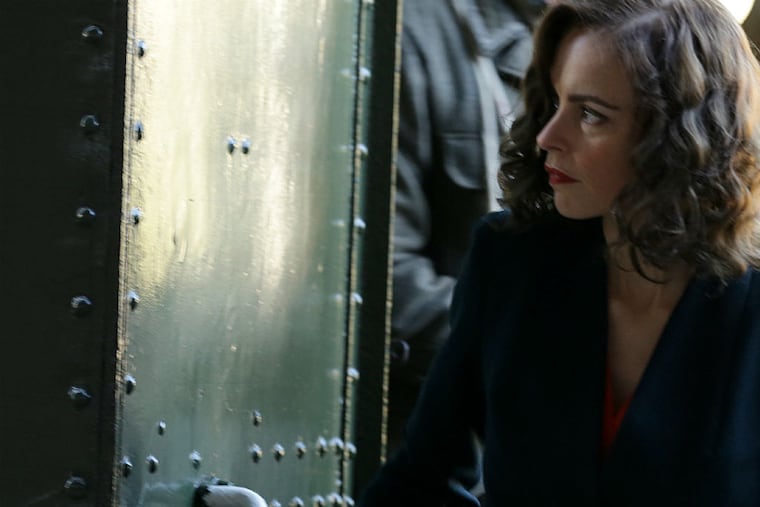'Phoenix' resurrects post-Holocaust deception, intrigue, suspense
Phoenix, a moody post-Holocaust noir, stars the formidable German actress Nina Hoss. It's cowritten and directed by Christian Petzold, who shepherded Hoss through 2012's taut East-West thriller Barbara. Like the latter film, Phoenix finds its protagonist moving anxiously along the borders of postwar Germany, telling lies as if she believed them.

Phoenix, a moody post-Holocaust noir, stars the formidable German actress Nina Hoss. It's cowritten and directed by Christian Petzold, who shepherded Hoss through 2012's taut East-West thriller Barbara. Like the latter film, Phoenix finds its protagonist moving anxiously along the borders of postwar Germany, telling lies as if she believed them.
Unlike Barbara, though, which took place in 1980 with the Stasi's informants everywhere, Phoenix is set in Berlin immediately after the Allied Forces' liberation of the camps. It takes a while to realize that the woman whose face is wrapped in bandages, mutilated by gunshots, and about to undergo reconstructive surgery is Hoss' Nelly Lenz. A jazz singer and a "Jewess" who was the sole survivor of internment among her well-to-do family, Nelly is being taken care of by a woman, Lene (Nina Kunzendorf), who will help her with a new identity, a new home in Haifa. Lene has proof that Nelly's husband, Johnny (Ronald Zehrfeld), was the one who betrayed her to the Nazis.
Nelly doesn't believe, doesn't want to believe. She trolls the nightclubs of the American sector, looking for her piano-playing spouse. Two women, doing a good impersonation of Sally Bowles in Cabaret, sing Cole Porter. She meets a man bussing tables who looks like her husband; he doesn't recognize Nelly, though there is something familiar about her. An exercise in deception follows. There is intrigue. There is suspense. Guilt - a man's guilt, a nation's - hangs heavy in the air.
Phoenix ends with a haunting performance of "Speak Low," the Kurt Weill/Ogden Nash standard popularized by Billie Holiday. It is Hoss' Nelly singing, "Love is a spark, lost in the dark too soon, too soon." And it is Johnny accompanying her on the ivories.
The truth of the moment, after the mystery that has come before, is almost too much to bear.
EndText
215-854-5629@Steven_Rea